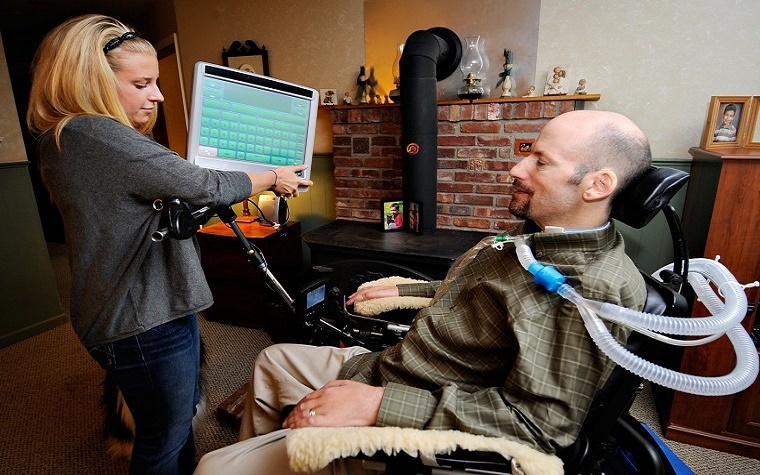
An international fraternity has offered $100,000 in funding to support a research program aimed at developing new treatments for amyotrophic lateral sclerosis (ALS).
Phi Delta Theta Fraternity recently announced its plan to back the Milton Safenowitz Postdoctoral Fellow program over two years, with its funding going to ALS researcher Dr. Antonia Dominguez.
ALS is a disease of the nerve cells in the brain and spinal cord. It leads to loss of muscle control and movement, typically resulting in total paralysis. Patients typically die of ALS within two to five years of diagnosis. To date, only one ALS drug -- which only slightly extends survival -- has been approved by the U.S. Food and Drug Administration (FDA).
The most common cause of ALS is the C9orf72 mutation. Dominguez's research will be focused on that mutation.
"By understanding the molecular mechanism and regulatory landscape of C9orf72, we hope to define new RNA or proteins as potential druggable targets for treating ALS," Dominguez said. "I am honored and grateful to both The ALS Association and Phi Delta Theta for the Milton Safenowitz Postdoctoral Fellowship. With this generous support, I will apply emerging technology to understand how C9orf72 mutations impact the survival of motor neurons (cells that die in ALS) that are derived from induced pluripotent stem cells (iPSCs). The results from these studies have potential to define new targets for future ALS therapeutics."
Phi Delta Theta has backed The ALS Association for many years.
"Phi Delta Theta takes great pride in our partnership with The ALS Association," Steve Good, senior director of engagement for Phi Delta Theta, said. "We are committed to the fight against ALS, and our members continually impress us with their efforts to support those researching and living with the disease."
ALS was first discovered in 1869 by French neurologist Jean-Martin Charcot, but it wasn’t until 1939 that Lou Gehrig brought national and international attention to the disease. Ending the career of one of the most beloved baseball players of all time, the disease is still most closely associated with his name.